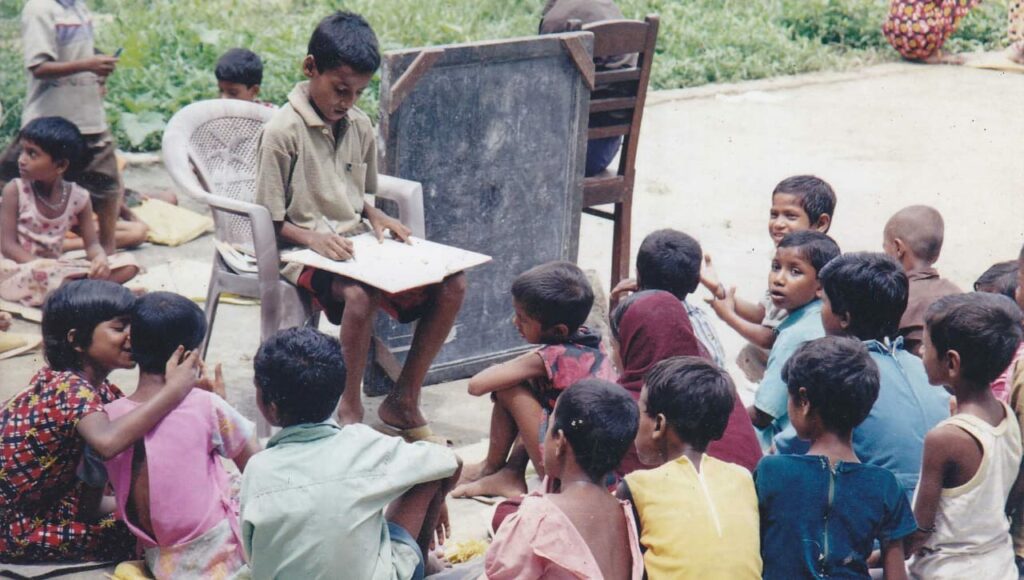Rosa the Sumatran rhino, one of fewer than 80 in the world, has given birth in an Indonesian wildlife sanctuary after suffering a total of eight miscarriages over 17 years.
The new female calf is bringing renewed hope for the survival of the species which is on the brink of extinction.
Vets at the Sumatran Rhino Sanctuary (SRS) in Way Kambas National Park, which is temporarily closed to the public to allow for mother and baby bonding, made sure the calf was safe and healthy immediately following the birth.
‘The birth of this Sumatran rhino is such exciting news amidst the efforts by Indonesian government and partners to increase the population of the Sumatran rhinos,’ Wiratno, the director-general of Indonesia’s Environment Ministry, said in a published statement.

The calf’s father Andatu was born at the sanctuary in 2012 to a female named Ratu, and a male named Andalas, who in turn was born at Cincinnati Zoo in the USA.
Unique Behaviour
Rosa first became pregnant in 2005 as part of a breeding programme designed to boost the species’ numbers but after losing eight consecutive calves there was very little hope that she would ever become a mother.
Now the birth at the semi-wild sanctuary in Lampung Province brings fresh hope that the species will survive. Just six Sumatran rhino calves have been born in sanctuaries since efforts began in the 1980s, three of which have been at the Way Kambas sanctuary.
In 2005 Rosa was identified from the forests of Sumatra’s Bukit Barisan Selatan National Park, because of her unusual behaviour traits, and brought to the park for the breeding initiative.
Unlike most Sumatran rhinos, she exhibited none of the shy, solitary behaviour normally associated with them.
Previously the Sumatran rhinos roamed as far north as the foothills of the Himalayas in Bhutan and as far east as China. Now there are as few as 80 left
Instead of preferring to live in thick, isolated forests and moving mostly by night, the experts observed that Rosa was comfortable living and feeding in close proximity to humans.
However, this unique behaviour put her in danger from poachers and it was decided she should be relocated.
Rosa adapted well to life at the sanctuary, continuing to exhibit traits including making loud noises when around people, or when it was her feeding time. She also ‘sang’ while happily wallowing in her mud holes.
Critically Endangered
The species, which once had a wide range in Southeast Asia, has been decimated in recent years. Their numbers have fallen by about 70 per cent in the past two decades due to multiple threats including climate change and poaching, as rhino horn is often illegally traded to make traditional Chinese medicine.

The birth of Rosa’s calf brings the total of Sumatran rhinos in captivity in Indonesia to eight – the rest of the critically endangered animals live in the wild mostly on the islands of Sumatra and Borneo.
Previously they roamed as far north as the foothills of the Himalayas in Bhutan and as far east as China, with large colonies ranging across the Malay Peninsula.
Nina Fascione, executive director the International Rhino Federation (IRF) called the birth a ‘momentous event’.
Cathy Dean, CEO of Save the Rhino International, said: ‘This is fantastic news for Sumatran rhino conservation and we’re so excited that Rosa and her new calf are healthy and doing well.
‘The birth wouldn’t have been possible without the commitment of the Indonesian Ministry of Environment and Forestry and our many NGO partners in Indonesia and around the world.
‘We’ve been holding our breath since finding out Rosa was pregnant. Rhino pregnancies aren’t easy, so it’s wonderful to be able to celebrate this birth and know that there’s one more Sumatran rhino in the world.
‘However, the fact that we are so excited about the birth of one rhino highlights that these wonderful animals still teeter on the edge of extinction. But the news brings us hope for their future.’













